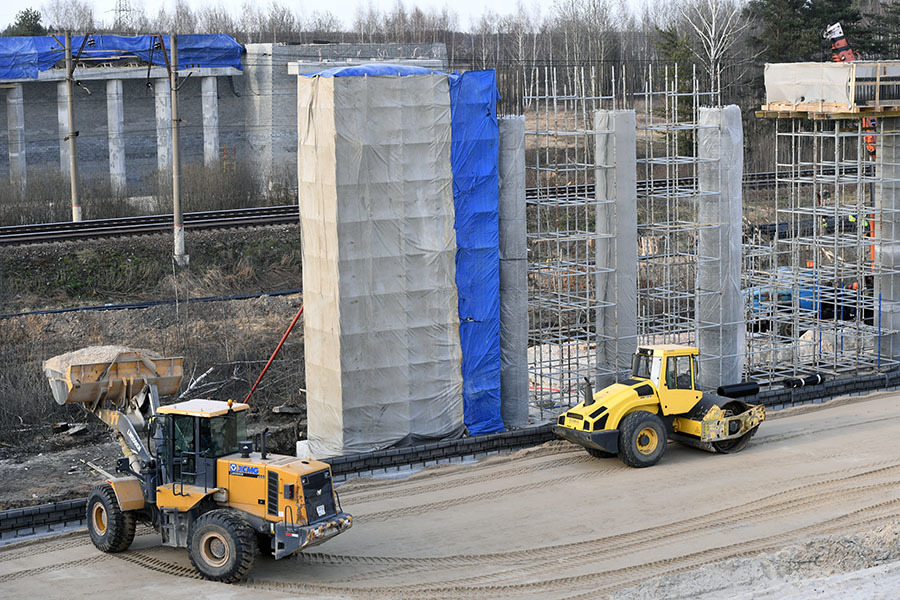The speed limit on the toll roads M11 Neva and M4 Don can be increased to 150 km / h. This was stated by the head of the state-owned company Avtodor Vyacheslav Petushenko during the opening of roads bypassing Losevo and Pavlovsk.
“Such a great country like ours has the right to have roads where the speed is 150 km / h,” Petushenko said.
Petushenko added that now the permissible speed limit on the M11 highway is 130 km / h, and the company proposed to increase this figure to 150 km / h.
He specified that on July 4, the road bypassing Losevo and Pavlovsk has a limit of 110 km / h, which will increase to 130 km / h by the time drivers get used to the highway. Subsequently, the limit may also increase to 150 km / h, as in other sections of the M4 highway.
About the tracks being built by Avtodor, the head of the traffic police Mikhail Chernikov also spoke out. On July 4, he announced that he expected to achieve zero mortality on toll roads in Russia by 2024.
“On the safest toll roads that the state company makes today - the lowest accident rate and the lowest mortality rate. In fact, I think that in 2024 we will see zero mortality on these toll roads, ”TASS quoted Chernikova.
Note that at the beginning of 2020, Avtodor reported a 20% reduction in fatalities as a result of an accident on the routes of a state-owned company. Moreover, the number of all accidents decreased by 8%. The company did not give exact figures.
Commenting on the prospects for increasing the speed limit on toll roads, the director of the National Public Center for Traffic Safety Sergei Kanaev noted that good conditions have appeared for this. He suggested that the security issue of this decision has already been worked out by Avtodor.
“There was an opportunity to increase the speed limit. How safe is it? We are well aware that no one will enter a similar regime if some experiments are not carried out, statistics are not studied, etc. Avtodor will definitely not be an enemy to itself, so that people begin to crash on the tracks. This is a measured step, ”the expert said in an interview with RT.
He added that such decisions could hardly have been made earlier, since there were no necessary standards and the roads themselves that met all the requirements. “Time is passing, everything is changing, there are cars that are driving at a faster speed,” Kanaev concluded.
A similar opinion on the increase in the speed limit is shared by Dmitry Klevtsov, vice president of the Russian Federation of Car Owners. In an interview with RT, he noted the current level of quality of Avtodor highways, urging him to carefully consider the issue of security.
“Avtodor toll roads are highways, high-speed roads of the highest category, with lighting, chippers, etc. It is possible to increase the speed limit, but with one condition - when choosing sections of roads with a higher speed limit, you must rely on safety measures, ”he said, expressing confidence that enough time had been devoted to this moment at the state-owned company.
“Good experts are seated at Avtodor, knowledgeable in safety, and no one will mindlessly increase the speed limit on road sections unless safety requirements are met,” said Klevtsov.
Speed limit on the Central Ring Road
Earlier, prospects for increasing the speed limit to 150 km / h were discussed in the framework of the discussion of the Central Ring Road (TsKAD). As the head of the Ministry of Transport Evgeny Dietrich stated at the end of June, the speed on this highway can be increased from the agreed 130 to 150 km / h.
“What has been previously agreed upon today is probably the speed of 130 km / h. We are now discussing the potential for speed increases of up to 150 km / h. I think that within a year we will make such a decision, ”RIA Novosti quoted Dietrich as saying.
- Construction of the Central Ring Road in the Ramensky District of the Moscow Region
- RIA News
- © Sergey Pyatakov
Recall that the Central Ring Road is a highway in the suburbs with a length of more than 300 km, the main task of which is to unload the departure routes of Moscow and the Moscow Ring Road.
The Central Ring Road should become a bypass route that transit transport can take. The highway is divided into five launch complexes, which were planned to be completed by a different date. As Petushenko previously noted, the fare on the Central Ring Road (TsKAD) will be 2.5 rubles per kilometer.
Deputy Prime Minister Marat Khusnullin at the end of June said that most of the Central Ring Road will be open this year. According to him, in July several more separate sections of the Central Ring Road will be opened, with a length of about 14 km, after which preparations will begin for the commissioning of two large sections, the length of which exceeds 100 km.

